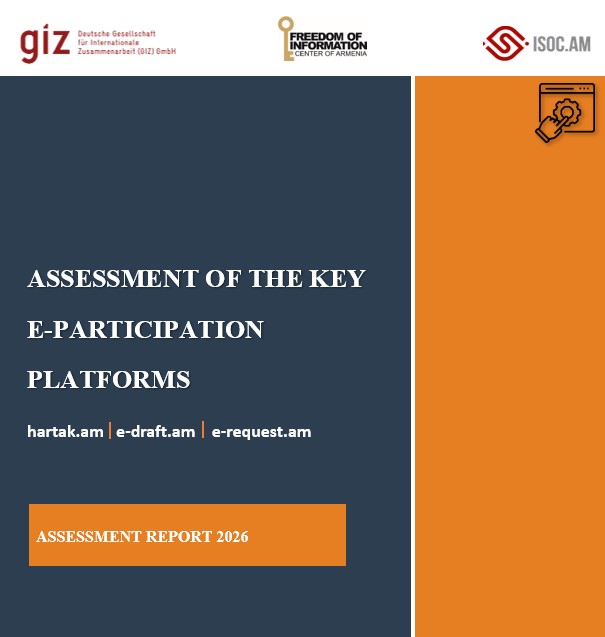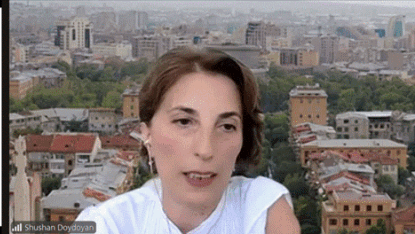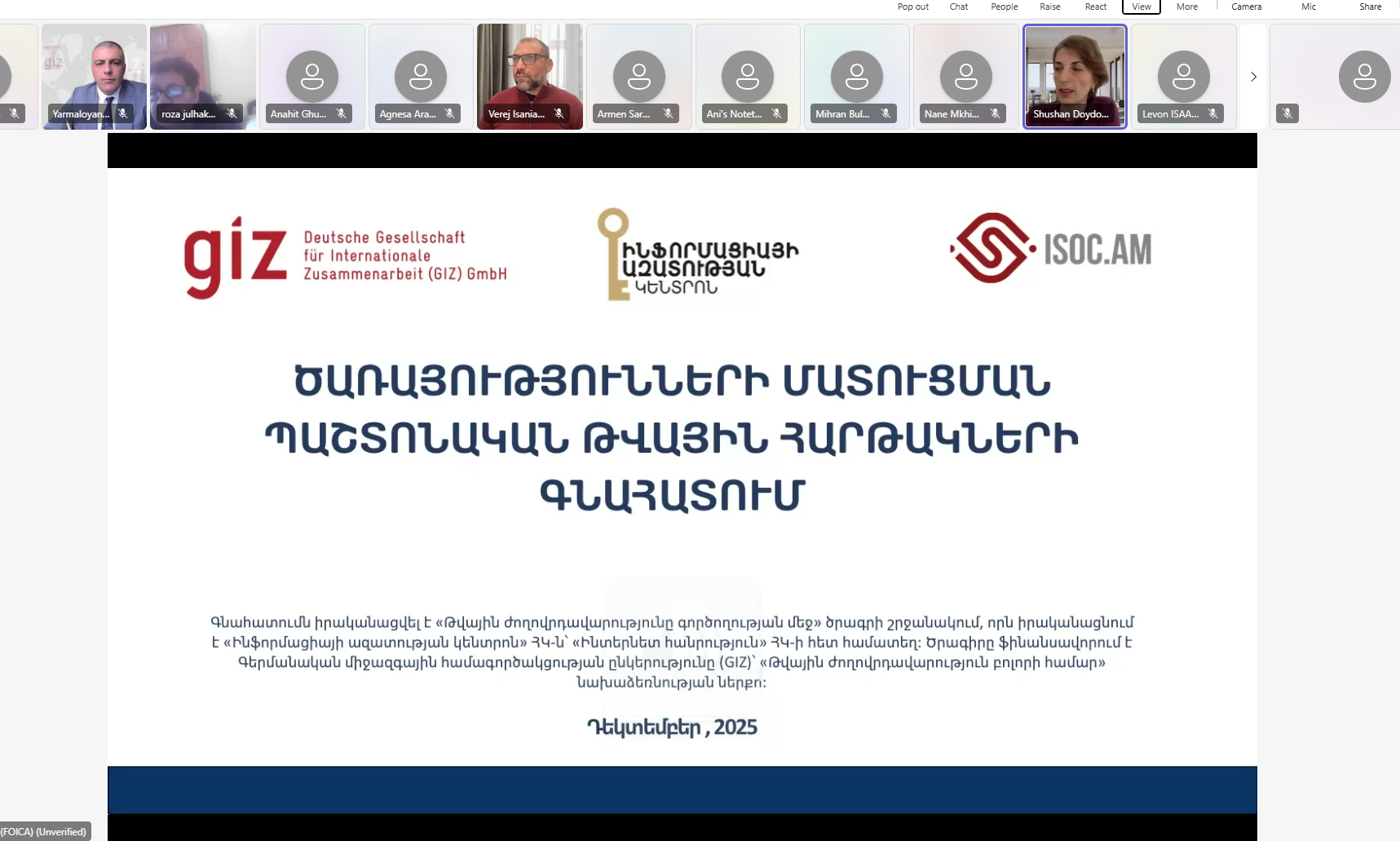Shushan Doydoyan’s speech on the Armenia’s progress in BO at the kick off meeting “Community of Practice on Beneficial Ownership in EaP” organized by OGP.
Beneficial ownership progress in Armenia
By Shushan Doydoyan
BO has been an ongoing priority for the Armenian government and civil society. The Arm Gov and the Civil society have been engaged in BO issue right after revolution in 2018. Three CSOs including the FOICA come up with a recommendation to include a special commitment in the 4th OGP Action plan of Armenia to launch BO process in the field of EITI. Thus, we succeeded in leveraging the OGP action plan to advance the beneficial ownership transparency reforms in the country where the Government showed a high political interest and will for a progress in the field.
The idea was fully supported by the Gov. and within 2 years period of time the Arm Gov fully completed the commitment by adopting necessary legislative amendments and designing and building an electronic public registry to collect, store and publish data on the Beneficial Ownership of mining companies. Now the government is expanding BO to involve all business sectors this year.
In the meantime, the civil society have been actively engaged in raising public awareness and understanding among the target groups. For example, last year the FOICA organized a series of public discussions with the media companies to inform them about the benefits of the reform as well as to discuss possible challenges for the media field. Armenian media organizations and independent experts agreed that transparency of media ownership was a crucial issue for struggling against fake news and disinformation. They were assured that public knowledge of media owners’ identities can prevent abuses of media power, such as corruption in the media system, monopolies in the media, as well as undue influences over the media. In addition, FOICA together with its partner media organizations undertook an initiative to create transparency on “who owns the media?” by getting access to this information and making it widely available for the public online.
At present, the progress towards wider BO transparency is expanding. According to the new legislative amendments all business sectors will be covered. The main idea now is to establish and launch a beneficial ownership public registry of all legal entities registered in Armenia. The registry will contain and make publicly available information about who ultimately owns and controls Armenian companies.
Do we foresee any challenges in implementing this reform?
– Some media companies have fears that this might create a threat for the press freedom and expressed their concern that if the initiative is not used correctly, it can be turned into an instrument to pressure the media. This is the most vulnerable issue expressed by the media companies, as any attempt of the state control can ultimately contain some risks of interference. On the other hand, the lack of the control can eventually make the process fail. So, a golden balance here is of utmost importance. I think that it’s the civil society, rather than state agencies, should play a significant role in the monitoring of BO data and identifying any potential inaccuracy or false information.
– Access to BO public data should be free of charge. This is the second challenge we see in the field. There are some suggestions brought by the Gov. that the data might be partially accessible free of charge, perhaps, only journalists might be granted with a free access. In my opinion, limited access to information might create an artificial barrier for other civil society groups to play a crucial role in applying strong public control over the process including checking the accuracy of data, analysing and debating. Without this opportunity, the process will be turned to a formal one. As Peter said, “It will undermine the real value of the register”.
– The state has also a low capacity issue inside the system. The state registry system staff workers are not well equipped with necessary skills and knowledge to provide assistance, consultations to the business.
– The last challenge is related to the liability and sanctions. We see the application of administrative or criminal liability might create a risk of interference. Especially, in the field of the media self-regulatory mechanisms should be fostered and applied for gaining stronger and long-term impact. Measures of responsibility should be preventive and not just punitive or repressive. I think that this approach is lacking in the proposed legislation.
What will be our future directions?
– Media environment should be protected and considered carefully with regard to BO reforms. Media should face an extra attention. In this regard, I see the application of the RSF “Media Ownership Monitor” (MOM) http://www.mom-rsf.org/en/about/methodology/ mechanism as a solution. RSF developed a mapping tool in order to create a publicly available, continuously updated database that lists owners of all relevant media. It can become an alternative tool. In the meantime, the independent and unbiased media outlets should start publishing ownership information on volunteer basis and show a good example to others.
– The civil society may continue to think of innovative methods to apply the ownership information. For example, by researching other companies owned by shareholders of major media outlets, any ties the owners have to local and national political actors and the financing of political parties and electoral campaigns. Or they could consider developing new tools that would help users to become aware of any potential bias a media outlet might have in its reporting, based on business interests of its owners. Within the EU funded project FOICA and its partner local NGO’s created a database of media ownership based on the information provided by the state registry. Now, the database contains ownership information on 60 media outlets of Armenia.
– Public discussions with all stakeholders, with business associations, private companies should be a regular process. Discussions are also important so that a public demand will be created on access to business ownership, and the public will be concerned on becoming aware that it’s their right and legitimate interest to have access to who owns the business.
– Civil society groups should be granted with complete and free access to public registry to apply public control over the process.
And I think if these challenges are managed accordingly and timely, I am convinced in two years we will have one of the best and progressive practice in BO transparency field.









